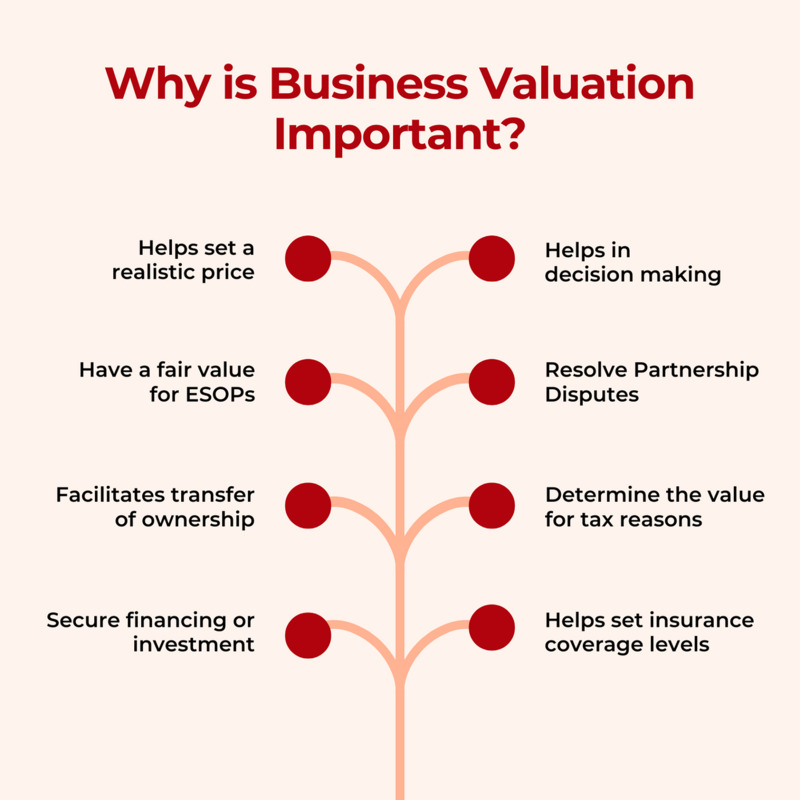Understanding the Business Sale Process
Sep 29, 2024 By Darnell Malan
Purchasing or selling a company is an important financial decision needing careful planning and implementation. This procedure involves different considerations like the assessment of business worth, mergers, and acquisitions, along with a good exit strategy. If you are someone aiming to benefit from years of laborious work or if you're a businessperson in search of expansion chances, getting knowledge about this process's complex aspects becomes necessary. This article explores strategies for achieving the best deal when engaging in business transactions.
Importance of Business Valuation
Business valuation is the fundamental element in any successful buying or selling activity. This process decides what a business's fair market value is and gives a foundation for negotiation talks. There are different ways to determine the worth of a business, such as methods based on income, comparing it with other businesses in the market, or evaluating its assets. Every approach provides a distinctive understanding of a company's value and it should match with the particular conditions of the business. Correct estimation allows sellers to establish an achievable price, while purchasers can make educated proposals. Involving a professional evaluator could boost trustworthiness in discussions and assist in revealing possible factors that increase worth which may not be visible upfront.

Besides the common methods of valuation, taking into account the non-physical assets that can add to a company's total worth is imperative. The reputation of a brand, loyalty from customers, and private technology might greatly influence what a business is valued at. By assessing these elements, you can form an inclusive image of value which could enhance results in negotiations. Furthermore, thinking about the possible earnings in the future can affect how both buyers and sellers see a fair price.
- Intangible Assets: Brand loyalty and reputation can add significant value beyond financial metrics.
- Future Earnings: Consideration of growth potential is vital for both buyers and sellers.
Navigating Mergers and Acquisitions
Mergers and acquisitions, often called M&A, give a strategic path for growth and enlargement. People who want to buy or sell must have an understanding of the M&A field. When there is a merger, two businesses unite to make a new business entity. Usually, they combine their resources and knowledge. On the other hand, an acquisition is about one company buying another completely or partly. Both situations need careful check-ups to evaluate risks, chances, and compatibility. M&A deals could also give financial benefits like saving costs and widening market reach but they demand thoughtful preparation for a successful merger. Understanding the legal and regulatory implications is equally important to avoid potential pitfalls.
For success in the process of M&A, good communication is very important. Both sides must be transparent to create trust and help a smoother changeover. Expressing goals and anticipations clearly can decrease confusion and make efforts for integration more efficient. Also, getting help from law and finance experts who are focused on mergers & acquisitions can assist in dealing with complicated matters and making sure rules that apply are followed.
- Communication: Transparency between parties fosters trust and reduces misunderstandings.
- Professional Guidance: Engaging M&A experts can navigate legal complexities effectively.
Developing an Exit Strategy
A leaving plan is very important for those who own businesses, particularly when thinking about selling their company. It paints a picture of the method for shifting ownership and making the most out of investment returns. An exit strategy that has been properly explained can influence the process of selling in a big way because it lends clarity on goals and time frames for business owners. Choices for leaving could be selling to an outsider, passing on to relatives, or carrying out a first-time public offer (IPO). Each choice has its unique benefits and difficulties. The suitable decision is based on personal situations and market conditions. Making a well-planned exit strategy not only gets owners ready for a profitable sale but also sets the business up for continued achievement under new ownership.
Conducting Effective Negotiations
Negotiation is a very important part of the process of buying and selling. If you are a buyer or seller, learning negotiation methods can give better results. Having a good relationship and trusting the other side can create a positive environment for talks. It is very important to stay adaptable and receptive during discussions, while also strongly holding onto central concerns. Understanding when it's the right time to reach the common ground or the correct moment to leave can determine whether you get a suitable agreement or accept something lesser. Record all understandings as it assists in preventing confusion and makes sure both sides agree on conditions.
Understanding the emotional factors involved can also improve how well you negotiate. Both buyers and sellers usually have strong feelings connected to the business, which may influence their choices. If they stay unemotional and concentrate on facts instead of emotions, people can guide negotiations more successfully. Also, using planned compromises can show a positive attitude and promote teamwork, which results in better conditions.
- Emotional Dynamics: Understanding feelings can help navigate negotiations effectively.
- Strategic Concessions: Offering concessions can foster goodwill and facilitate agreement.
Post-Transaction Considerations

When a business deal is finished, it does not mean everything has stopped. Buyers and sellers need to think about several things after the transaction to make sure the transition happens smoothly. Those who sell might have to help the new owner when changes are happening, provide important knowledge about operations, and ensure that clients still stay with them. Purchasers need to concentrate on incorporating the newly acquired business into their current operations, matching company cultures, and handling staff anticipations. Tackling these components in an upfront manner can contribute to achieving a better result and promote a good rapport between both sides as they progress.
Planning after the transaction should include performance measures to assess success and pinpoint areas that need changes. Setting up main performance factors (KPIs) can assist in monitoring how successful the integration is, while also bringing attention to problems needing care. Constant interaction with interested parties and continuous backing for the new leadership team may ease the adjustment period and boost stability over time.
- Performance Metrics: KPIs can track the success of integration and identify areas for improvement.
- Ongoing Support: Regular communication helps maintain stability and fosters positive relationships.
Conclusion
To buy or sell a business effectively, it needs full preparation, decisions based on knowledge, and strong negotiation plans. It is critical to know the worth of your business and also understand deeply about the mergers and acquisitions process. You should have a firm plan for exiting from your current position and knowing how to negotiate effectively will help you get the most out of these transactions. Also, thinking about what actions need to be taken after the transaction could make sure that both buyers & sellers profit from this change without any problems occurring afterward. If business owners take the correct method, they can reach their aims and reveal all the capacity of their investments.

Real Estate Investment: 5 Simple Strategies to Get Started

What Is FMRR (Financial Management Rate of Return)

Biden's ESG Bill Veto and Your Retirement: What's at Stake?

An Overview of Defensive Stock: Safe Investment in Volatile Markets

Small Scale Investing: 5 Effective Strategies for Beginners

Things to know about Preferred Stock ETFS vs Bond ETFS

Your Essential Guide to Completing the FAFSA with America Saves

Which Are The Money Mistakes That Millennials Should Avoid: An Over

Understanding the Business Sale Process

